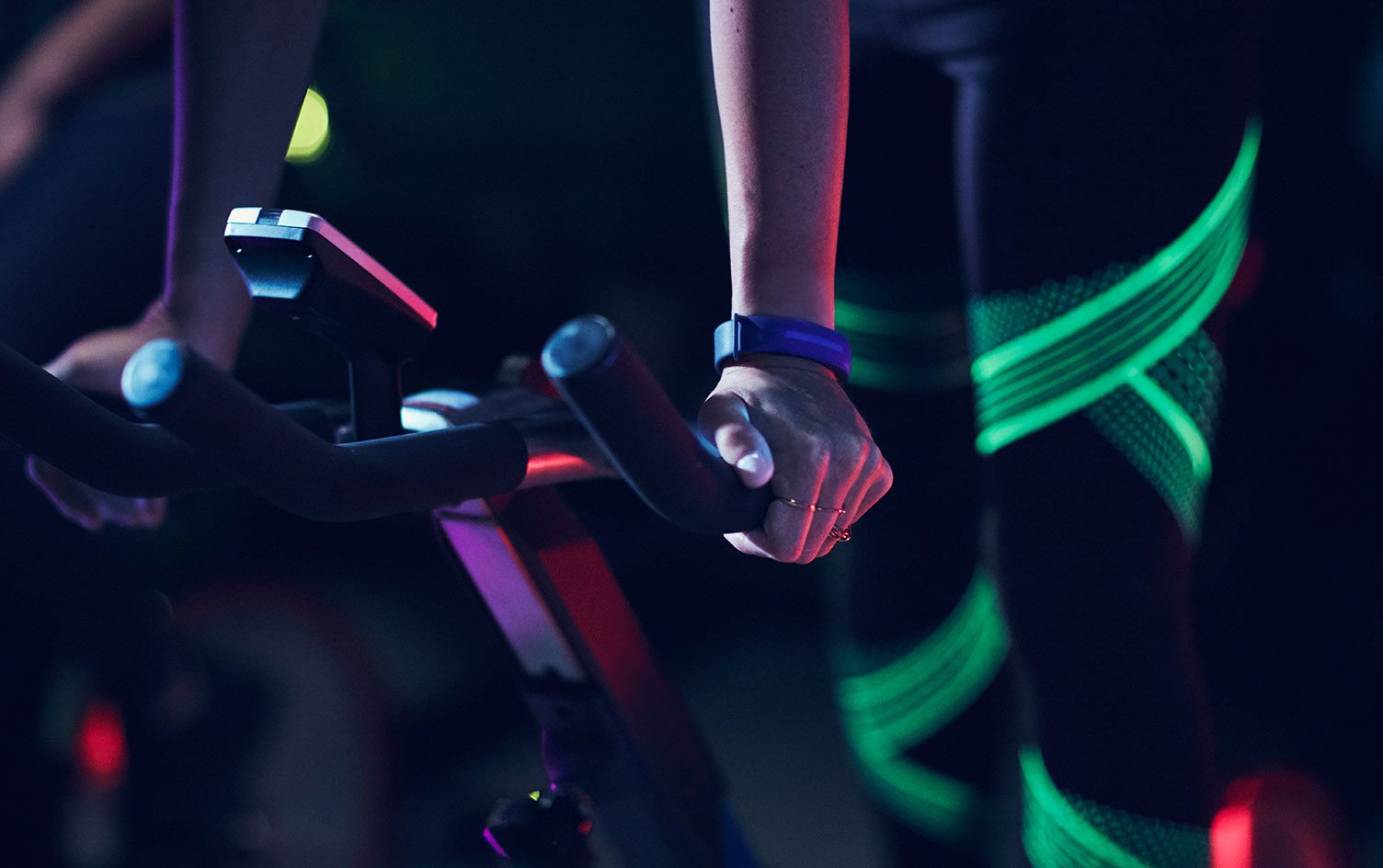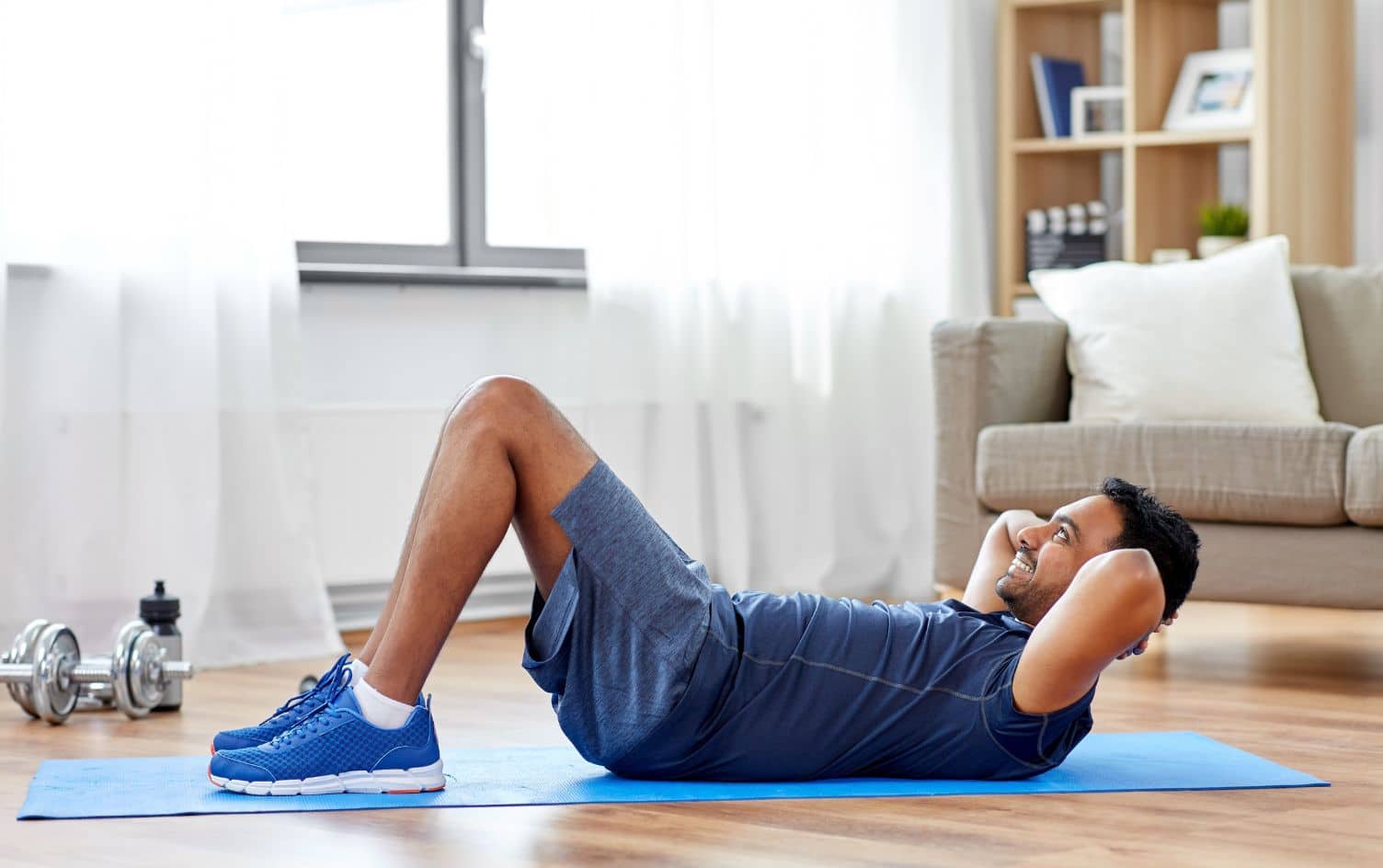“Oh, you’re not fat—you’re just big-boned!”
It’s a phrase I’ve heard my entire life from well-meaning friends, family, and strangers. But when they refer to my robust 5’10″ frame as “big-boned” and “curvaceous,” I can’t help but hear the word “fat,” even though they’re not saying it outright.
Throughout my pre-teen and teenage years, these comments on my body bred insecurities and led to a pretty unhealthy body image. Eventually, I didn’t just feel voluptuous, heavy, big-boned, or any other kind of term for “big”: I felt that this characteristic made me unworthy and unlovable.
Today, I’ve learned to appreciate my body for its shape. Being strong and tall allows me to power through climbs in indoor cycling classes, smoking even the class regulars in the front row. But it took me a long time to get where I am today—and it wasn’t easy.
As a kid, despite my dislike for the way my body looked, I always admired what it could do.
My heavier build helped me exceed in sports at an early age. The same boys who’d sneer and snicker should they be forced to take my hand during music class chose me first to be on their teams in P.E. class. My added weight and height in comparison to the other girls in my class was an asset—I could pummel members from the opposing soccer team with barely a flinch of my body and block basketball shots simply by standing next to the shooter. These physical characteristics gave me prowess and, most importantly, acceptance within that circle of boys I desperately wanted to please.
So, in a sense, I didn’t hate my body entirely. I hated the way it looked—always lumbering over my appropriately sized friends in pictures (I was the second-tallest person in my sixth-grade class photo, both boys and girls). But I did feel empowered by it each time I’d outrun another girl on the soccer field or came in first in the mile run in gym class.
My love-hate relationship with my figure continued onward through junior high and high school. Each time a boy would jokingly ask me out or sneer some unintelligible comment under his breath my way while walking down the hallway, I’d just funnel my focus into practice later that day. I had to be big to help my team win.
When sports ended and college began, so did the purpose for my larger frame.
My size was no longer a positive attribute that gave me power, and I was back to feeling like the “fat girl” who was unlovable. To deal, I’d drink, hitting up the bars Thursday through Sunday. While part of it was to mask my depression, it was also one of the only times I believed I’d get any type of sexual or romantic attention from guys—when they were drunk.
That heavy reliance on partying continued after college, until one night at the bars when I got in a minor tiff with a man—I don’t even remember what it was about—and he ended our interaction by essentially calling me fat.
It wasn’t the first time a stranger had call me fat, but something about this exchange was different. I reached a breaking point. It wasn’t what he said or did—it was how I felt in that moment. Dehydrated from drinking too much alcohol. Exhausted from constantly being hungover. Depressed and filled with self-loathing that made me never want to leave my apartment. I had gotten to the point where I was partying and doing pretty much nothing else. I knew I needed to change, and in my mind, that change meant not being the “big” girl anymore.
I decided I needed to lose weight—or at least I thought that was the answer to my problems.
So I did. I lost weight—a lot, and very quickly. I hired a coach, consulted my sister for advice (a bodybuilding figure competitor with experience in extreme dieting and exercise techniques), and announced to my friends and my boyfriend that my life and routine would be irreversibly changing for the better. But while I doggedly tried to convince those closest to me that the weight loss was purely for “wellness” reasons, I thought (and hoped) it would help my depression disappear.
When I first started losing weight, my friends and family were really complimentary. And truthfully, the compliments I’d receive were addictive. But my euphoria would simmer slightly in those instances where the compliments seemed slightly backhanded.
“You look amazing,” one acquaintance said one evening, after he had a fair amount of alcohol. “I mean, you looked cute before. But now you’re like, really hot.”
To be fair, this guy wasn’t exactly a close friend of mine—I had always considered him somewhat of a d-bag. Still, comments like these would cause that inner, self-loathing little girl to surface. Was I not enough before? Was my life only now beginning 20 pounds lighter?
Still, while I looked trim in pictures, I didn’t feel any better inside.
What I did feel, however, was a plummeting libido (much to my then-boyfriend’s dismay), constant lethargy, increased acne, and serious body issues. I’d wake up before the crack of dawn and climb an endless staircase for an hour, go to work, then return to the gym after to lift weights in the same repetitive motion each week. I wanted to be receptive to my boyfriend’s affections and advances in bed so badly—I knew our relationship was in dire need of it. But the fear of sacrificing even an ounce of sleep for something other than my morning workout was all-consuming, and I hated myself for it.
Once I hit that 20-pound weight-loss mark, I plateaued hard. The number I’d see on the scale each morning would dictate my mood for the duration of the day, and once I was bouncing back and forth between the same two to three pounds, most of those days were dismal. I also started wearing a sport corset to work to cinch my waist. I became moody and agitated after I’d eat and feel totally uncomfortable. (Not to mention, the fish I would continuously microwave at 9 A.M. each morning as a part of my diet wasn’t exactly making me the most popular person in the office.)
While my life might’ve looked fine from the outside, I was living inside a hamster wheel. I was still depressed, and was feeling the effects of it. I felt weaker and more exhausted than ever. That appreciation I once had for my physical prowess was gone. Still, I figured it was a phase—so long as a stuck with the gym and continued to lose weight, all of my problems would be solved.
Of course, like all intense and less-than-healthy diet and exercise plans, failure was inevitable.
Mine collapsed a year and a half ago when I decided to move from Arizona to New York City for a new job. I had no friends or family in New York, and was leaving behind my serious then-boyfriend. I was all on my own, and I needed to find a place to live and learn how to take the subway. I simply couldn’t waste any energy on worrying about how I looked. I had to survive first—and the endless supply of bodega bagels, pizza, and cheesecake at my disposal didn’t necessarily help: I traded home-cooked, portioned meals for lots of Seamless takeout. What’s more, while I was still attempting to do those same monotonous workouts, I was half-assing them and simply going through the motions.
A few months in, once the initial excitement from trekking across the country died down, my body once again became a focal point. When I stepped on the scale for the first time after moving (roughly six months after I moved and stopped dieting and obsessively working out), I learned I had gained almost all of the weight back. Seeing those familiar numbers again was crushing, but I didn’t have the mental energy to start an intense weight-loss journey all over again. On top of that, I broke up with previously mentioned boyfriend, which only made me feel more miserable.

I set out to find a workout that would simply distract me from my breakup, and ended up finding so much more.
Those monotonous workouts I had relied on before weren’t very good at taking my mind off my broken heart. As I trudged back and forth on the elliptical or lifted a 10-pound dumbbell for the seemingly 100th time, all I could do was fixate on my vacant, exhausted expression in the mirror and cue up the same Spotify playlist I had relied for a year and a half. Post-breakup and living in a new city, I knew now might be the optimal time to find something a bit more immersive and experiential to shake things up. Conveniently, around that time I was also able to nab a position as a writer for ClassPass, which allowed me to do just that: tour the city’s wide array of fitness studios for free. And when I saw an indoor cycling studio just a few blocks from my apartment, I opted to give it a try. I was immediately hooked.
From the low lights to the pulsing music and cheery, supportive instructors, those classes eventually became almost-daily therapeutic sessions. Whereas my previous workouts consisted of machines positioned in front of televisions, the cycling studio felt like a high-stakes nightclub, a sensory experience even the most jolted cup of coffee couldn’t supply. From my burning quads and hamstrings to core and arms, I felt that same total-body release after each session that I had experienced on the soccer field nearly 15 years ago. I felt alive.
What’s more, I was actually good at it. Although my cardiovascular stamina certainly had something to do with it, I knew my long, muscular legs also played a part. For the first time since I played soccer and excelled in P.E. class back in grade school, my body finally felt like an asset again. An agent of power. And I began to realize that what my body looked like had absolutely nothing to do with that power.
The most important thing I’ve learned? My happiness doesn’t have to be tied to my weight.
Last week, I stepped on the scale, and despite weighing even more than when I had started my initial weight-loss journey two years ago, I’ve never felt better. From my energy levels to my self-confidence to how my body feels each morning when I wake up, cycling has transformed my relationship with exercise as it relates to my body. I’m not losing weight, but I’ve never felt healthier and happier.
Do I still wince each time someone (with the best intentions) tells me I’m big-boned or curvy? You bet. Do I find my figure more attractive than what it was two years ago when I was 20 pounds lighter? Not exactly—I’d be lying if I said I didn’t wistfully look at those pictures of me in a bikini two years ago. But part of growing older is having the ability (and confidence) to pinpoint what factors truly contribute to individual happiness. I’ve finally come to realize that true happiness isn’t tied to compliment showers from friends or fitting into size 2 jeans. My happiness is, and will always be, derived from what I achieve—whether I do it with my brain or my strong, powerful body.




